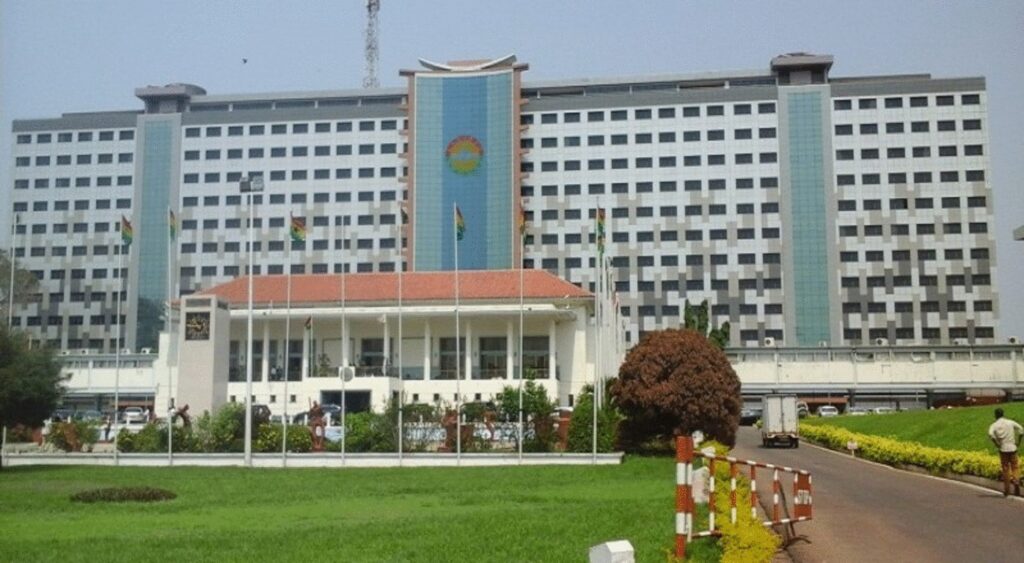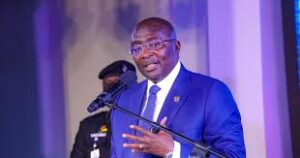Parliament Passes the 2025 Appropriation Bill

Parliament Passes the 2025 Appropriation Bill, Allocating GH¢293 Billion for National Expenditure
Parliament has officially passed the 2025 Appropriation Bill, granting the government access to a substantial GH¢293 billion, sourced from the Consolidated Fund and other public financial reserves, to manage the country’s affairs for the 2025 financial year.
The passage of this crucial legislation establishes the spending framework for the government, ensuring that resources are allocated in a structured and prioritized manner. The allocation will cover various sectors of the economy, addressing everything from public services to critical infrastructure projects.
A notable part of the budget, GH¢68 billion, has been earmarked for wages and salaries. This significant allocation highlights the government’s priority of improving the living conditions of public sector employees, with a particular focus on enhancing the welfare of those employed in key government institutions.
An additional GH¢13 billion has been allocated to settle outstanding arrears from previous years, which aims to clear backlogs that may have accumulated over time, ensuring the government’s financial obligations are met efficiently.
Debate and Concerns Raised by Lawmakers
During the parliamentary debate, some concerns were raised about specific aspects of the bill, including an apparent discrepancy in the appropriated figures. The Minority Chief Whip and Member of Parliament for Nsawam-Adoagyiri in the Eastern Region, Frank Annoh-Dompreh, expressed his apprehensions regarding a GH¢3 billion excess in the appropriation figure. He sought further clarification from the Finance Minister, highlighting the need for transparency and understanding in the allocation process.
Dompreh also questioned the inclusion of the Gold Board in the bill, stressing that the legislative process to establish this entity had not been completed. He expressed concern that the inclusion of the Gold Board in the appropriation might be premature, considering that its creation was still in progress. “We have started the process, but it’s not finished. We can’t jump ahead. Why is the Gold Board included in the appropriation before it’s officially passed into law?” he remarked during the debate.
Despite voicing his concerns, Dompreh indicated his general support for the passage of the bill. However, he emphasized the need for further clarification and adjustments to address the issues he raised.
Minister of Finance Provides Explanation
In response to the concerns raised by Dompreh and other members of the opposition, the Finance Minister, Dr. Cassiel Ato Forson, offered a detailed explanation regarding the GH¢3 billion excess. He clarified that the excess funds stemmed from additional revenue generated through Internally Generated Funds (IGF). According to Dr. Forson, these additional revenues were not part of the initial appropriation plan, but were instead collected throughout the fiscal year.
The Finance Minister assured Parliament that the Committee had been briefed about how these additional funds would be utilized. He explained that the extra revenue would primarily be allocated toward settling arrears from previous years, which had accumulated due to various government commitments.
“Mr. Speaker, the additional funds will be directed towards clearing arrears that were accumulated last year,” Dr. Forson stated. “These revenues will not alter the primary balance, which remains a surplus of 1.5 percent. We worked closely with the committee to ensure transparency, and we provided all necessary details on how the funds will be spent.”
The Minister further emphasized that the approval of the bill did not automatically give the government free rein to begin spending. He explained that the actual expenditures would depend on the availability of funds, as the government could only spend up to the amount available in the Consolidated Fund. If sufficient funds were not available, some allocations could be reduced or deferred.
Key Takeaways
The 2025 Appropriation Bill’s passage marks a significant step in ensuring the government has the resources necessary to fulfill its obligations and invest in the country’s growth. Despite some concerns raised by lawmakers, particularly regarding the GH¢3 billion excess and the premature inclusion of the Gold Board, the Finance Minister’s clarifications helped assuage some of these worries.
While Parliament has approved the budget, the government’s expenditure will remain contingent upon available funds, and any shortfalls in the anticipated revenue may lead to a reduction in actual spending. Therefore, while the bill sets the framework for the year ahead, its success will depend on the government’s ability to manage resources effectively and address any fiscal challenges that may arise.






